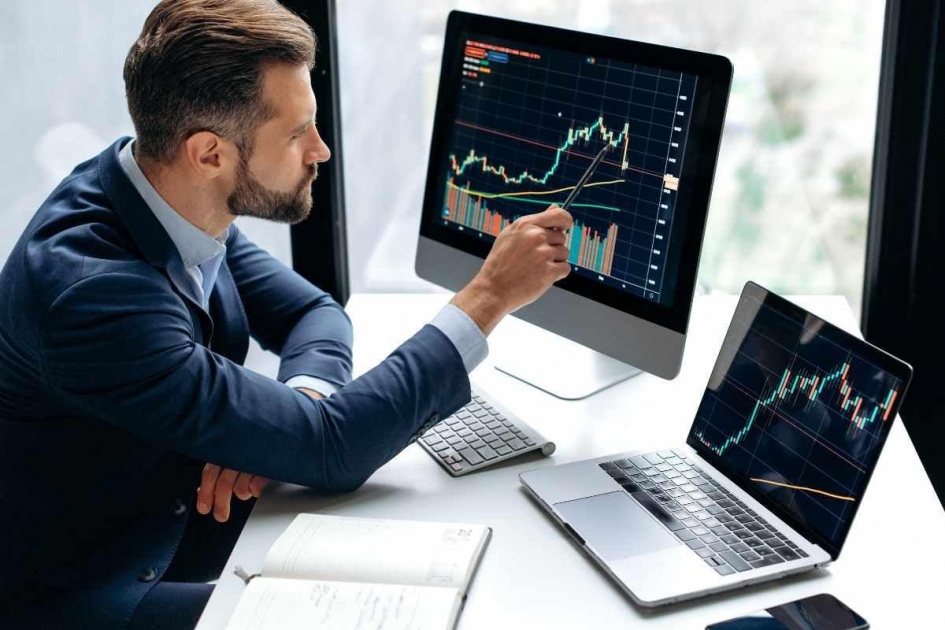
How to Benefit Most While Trading on Forex?
Forex trading is the world's largest and most liquid financial market covering many opportunities to make money. A trader needs to use some strategic approaches and proper tools to increase his/her gains and control risks while trading on Forex. Here are key strategies for understanding what is forex trading and how you can benefit most by trading in Forex.
1. Education and Continuous Learning
Understanding the market is the first step toward successful forex trading. Learn how to trade forex, from market analysis to trading strategies and risk management. Many webinars, online courses, and books are available to educate you on this. One needs to learn continuously since the forex market changes at an incredible pace, and being informed about the latest techniques and trends places one in a very advantageous position.
2. Choosing the Right Broker
One has to use a credible and honest Forex broker. Security during trading, competitive spreads, leading trading platforms—each one ensured by a good broker. Make sure that your broker is overseen by well-known regulatory bodies like the FCA, CySEC, or FSCA to keep your money safe. Additionally, consider different account types, as each one may cater to varying needs based on your level of trading experience.
3. Formulate a Trading Plan
A good trading plan serves as a roadmap to your trading activities. This should incorporate what your goals are concerning the trading, how much risk you can tolerate, and the strategies applied. A good trading plan details when to enter and exit a position, how and where to set up a stop loss and take profit, and how much capital to risk in each trade. Following through with your trading plan allows you to maintain discipline and avoid emotional decision-making that may trigger huge losses.
4. Harness the Power of Analytical Tools
Successful trading in the foreign exchange market will be very much contingent upon strong gears of market analysis. The technical and fundamental analyses let one conclude either trend or price movements in markets. Technical analysis is referred to by some as the study of charts with prices, and applying indicators like moving averages, RSI, and MACD to establish a trading opportunity. Fundamental analysis focuses on the study of economic indicators, news events, and geopolitical factors that, in turn, may influence currency prices.
5. Risk management
Risk control is part and parcel of forex trading. It helps to keep one's capital intact and ensures that the profit is there always in the long run. Set stop-loss orders for every trade to protect from losses, and never risk more than a small percentage of your trading capital in one trade. Diversification of trades within various currency pairs also can help in this regard. Also, leverage has to be kept in check because it may amplify the results on both sides.
While high leverage may increase the potential returns, it also increases the potential for large losses.
6. Emotional Control
Emotions are the major force when making decisions about trading. The two most dangerous emotions in trading are fear and greed. For instance, the feeling of fear might make one close a trade way too early, but greed can make one hold onto the losing trade, hoping to get out at a better price. Emotional regulation and strict compliance with your trading plan will aid in lessening those effects.
7. Advanced trading platforms
Make use of premier trading platforms replete with their analytics tools in most of their versions and possibilities for automated trading. For example, MetaTrader 4 and 5 are full-featured charting tools that have the facilities of backtesting and the implementation of automatic trading through Expert Advisors.
8. Continuous Performance Review
One can improve in trading by evaluating performance regularly. One should learn from past trades where weaknesses and strengths in a strategy can be identified. Keeping a trade journal may help to track trades, emotions, and thought processes while making a decision. This continuous review will help fine-tune your strategies and learn from past mistakes.
Conclusion
What you need to get the most out of forex trading is a mix of education, strategic planning, risk management, and emotional control. Choose the right broker, get the best tools for trading, and continually work on improving your strategies and bring improvement in your trades that have enabled you to achieve long-term success in the forex market.


























